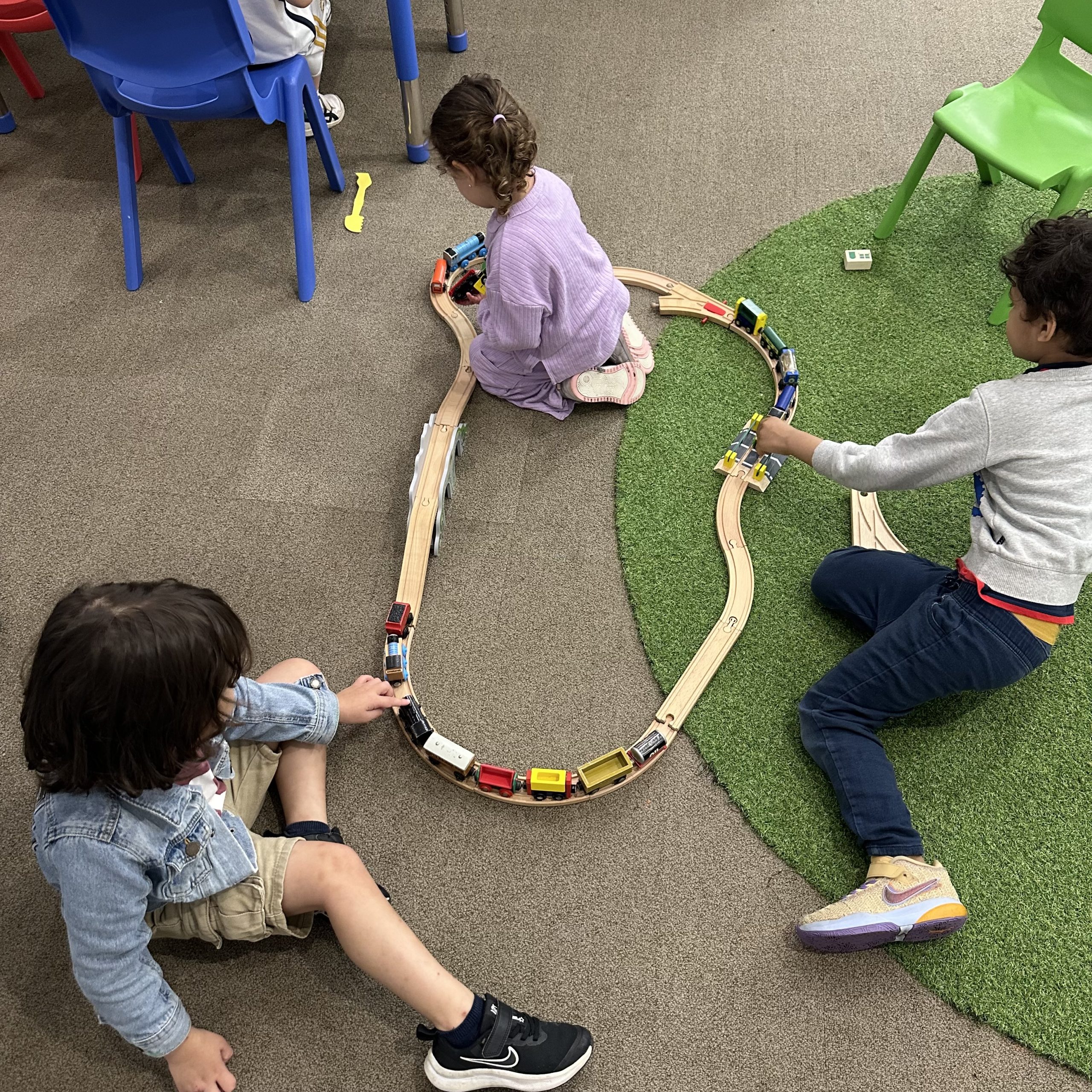
How Young Children Develop Social Skills with the Early Start Denver Model (ESDM) at OneOnOne Children’s Therapy
Social skills are essential for children, helping them connect with others, make friends, and feel confident in social situations. These skills develop gradually through interactions with caregivers, peers, and their environment. At OneOnOne Children’s Therapy, we use the Early Start Denver Model (ESDM) to support social skills development in young children with autism, particularly in Bondi Junction and Mascot.
Let’s explore how social skills develop and how the Early Start Denver Model (ESDM) can support this process for children in Sydney.
Early Social Skills: Infancy (0-1 Year)
Bonding with Caregivers: Babies begin their social journey by forming a bond with their caregivers. Eye contact, smiling, and cooing are early signs of connection, laying the foundation for trust and security.
Responding to Emotions: Babies quickly start to recognise and respond to the emotions of others, such as smiling back or crying when hearing another baby cry. These early responses mark the beginning of empathy.
Attachment: A secure attachment helps babies feel safe and confident as they explore their surroundings, knowing that their needs will be met.
Toddler Social Skills: (1-3 Years)
Parallel Play: Toddlers often engage in parallel play, where they play alongside other children without directly interacting. This is an important step towards socialisation.
Imitation: Toddlers love to mimic those around them, helping them learn social behaviours and understand the world.
Expressing Emotions: Toddlers begin to express their feelings more clearly, learning to manage emotions like frustration or happiness through actions like tantrums or hugs.
Learning to Share: Sharing is a challenging but crucial social skill that toddlers start to develop during these years.
Preschool Social Skills: (3-5 Years)
Interactive Play: Preschoolers begin to engage in cooperative play, where they communicate and collaborate with others in games.
Role-Playing: Pretend play, such as playing house or being a superhero, helps children understand different perspectives and develop empathy.
Improved Language Skills: With growing language abilities, preschoolers can express thoughts and resolve conflicts through words.
Understanding Rules: Children start learning simple rules and concepts of fairness, which shape their sense of justice.
School-Age Social Skills: (5-7 Years)
Teamwork and Cooperation: School-aged children participate in structured group activities, where teamwork and cooperation become vital.
Problem-Solving: As they grow, children develop problem-solving skills, learning how to negotiate and resolve conflicts with peers.
Forming Friendships: Friendships become more meaningful, with children choosing friends based on shared interests and respect.
Handling Peer Pressure: As social awareness increases, children learn how to manage peer pressure and stay true to their values.
How ESDM Supports Social Skill Development
The Early Start Denver Model (ESDM) is an evidence-based, play-based therapy designed for young children with autism. At OneOnOne Children’s Therapy in Bondi Junction and Mascot, we use ESDM to help children develop social skills through natural play activities. Here’s how we do it:
- Positive Role Models: Children learn by observing adults and peers. Our therapists model good communication, kindness, and empathy to set a positive example.
- Encouraging Play: Play is a natural way for children to develop social skills. In ESDM, play-based activities are central to learning.
- Teaching Emotions: ESDM helps children understand and manage their emotions, which is key to developing social competence.
- Promoting Empathy: Through ESDM, children learn to consider the feelings of others and how their actions affect those around them.
- Social Interaction Opportunities: ESDM includes group play, social events, and playdates to give children real-world opportunities to practice their social skills.
- Guiding Problem-Solving: Our therapists help children navigate conflicts by teaching them to express feelings, listen to others, and find solutions together.
- Positive Reinforcement: We encourage and praise positive social behaviours, reinforcing kindness, sharing, and cooperation.
- Clear Expectations: ESDM sets clear guidelines for acceptable social behaviours, helping children understand social norms and rules.
Why ESDM Works for Children with Autism
ESDM is a structured yet flexible therapy that is tailored to each child’s unique developmental needs. It has been proven to help children with autism develop essential skills like communication, emotional regulation, and social interaction. At OneOnOne Children’s Therapy, we use ESDM to foster these skills in a fun and engaging way, helping children in Bondi Junction, Mascot, and across Sydney reach their full potential.
We’re Here to Support You
At OneOnOne Children’s Therapy, we believe every child deserves the opportunity to grow, thrive, and develop essential social skills. Our clinics are welcoming spaces where children can explore their strengths and overcome challenges. Some children may be just shy, but other children need significant support to learn their social skills.
Reach Out for Support
Concerned about your child’s social skills? Interested in how the Early Start Denver Model (ESDM) can help your child? We’re here to guide you.
Call us on (02) 80657837 or email us to book a free 30-minute phone consultation. Let’s discuss how ESDM therapy at our Bondi Junction or Mascot clinics can support your child’s social development.
Our team includes experienced Speech Pathologists, Occupational Therapists, and Certified ESDM Therapists. Together, we provide high-quality, personalised intervention to help children with autism build the skills they need for a bright future.
